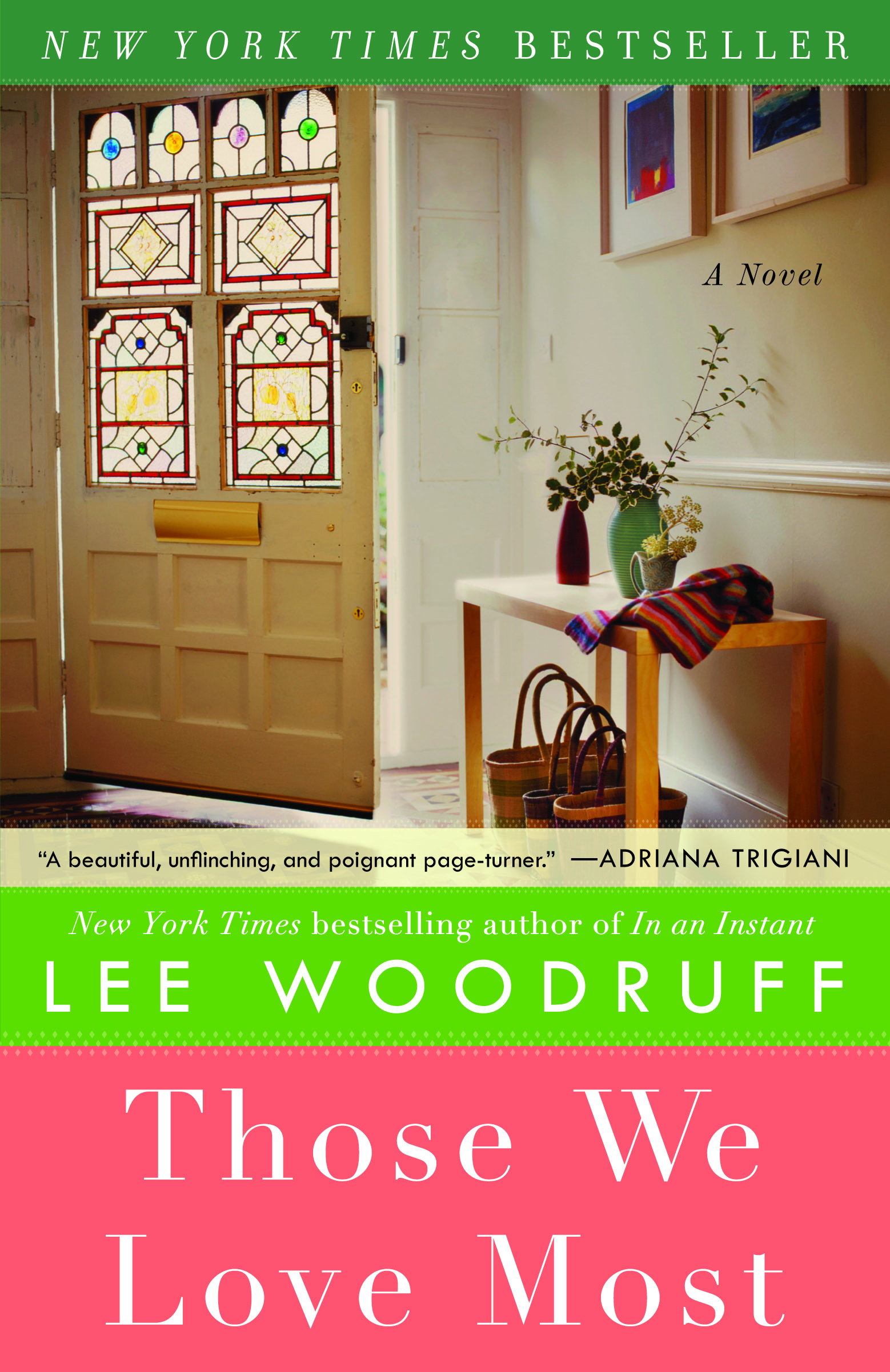Those We Love Most
 August 13, 2012
August 13, 2012  2 Comments
2 Comments A few words on my first work of fiction, "Those We Love Most."

Lee Woodruff's 'real life" touches 'Those We Love Most'-USA Today, 9/5/12
Watch the Video
The local berry farm closed a few years ago. That was a sad day for me. The farmer’s kids didn’t have the desire to keep up the family land that had for so long produced juicy strawberries in late June and then perfectly honeycombed raspberries (purple and red) right on their tail. In late July, there’d be blueberries so fat and sweet you could pop them right in you mouth. Sugar would have been redundant.
The closing of the patch was a loss to many of us locals and summer people and anyone who enjoys the ritual of growing or gathering their food understands why. Not only was there something satisfying about serving my family fresh, local grown berries, but there was a sense of accomplishment in picking them myself.
Heading to the berry patch was really more about communing and about companionship. Bent over or on my knees between the rows of green bushes, dragon flies humming, and crickets chirping, the field was my church at times, the ritual a kind of morning vespers. Berry picking was something I did with my friend Liza (aka “Groove” a nickname from the 70’s, the exact origin of which has been lost). Liza and I grew up on our little lake bay in the summers. She is the oldest continual friend I have and two of our children were born in the same years. They have inherited their friendships by birth, an unspoken powerful connection. Those ties go deep.
In the many years that Liza and I berry-picked, we survived the eye-rolling and the ridicule over our dogged devotion while the short season lasted. Together and alone we braved hot temperatures, rain and mist, bugs and flies all to find our peace, chatting and picking, talking and advising, finding the rhythm of the row as we filled the little green cardboard boxes and loaded them onto the farm’s hand nailed wooden trays.
It was the conversation that counted, more than anything. As our hands felt down the stalk, determining the firmness of a berry, our eyes focused on the color and our minds were free to talk. Picking was also about tending a friendship, sustaining the strong parts and feeling tenderly for the weaker places. Nothing was off-limits, in that easy way that lifelong friends have with one another. We covered kids and parenting, picked over our marriages and memories and reinforced summer rituals we’d now instilled in our own children; Monday night square dancing, Friday night s’mores at the campfire. We gossiped and swapped stories. We ate handfuls of berries straight from the vine. Being in the patch accomplished many things.
When they were younger, Liza and I would drop our kids at the morning camp and race to the patch to pick and talk. As they got older and able to join in, we’d occasionally bring them in the afternoons. Even the most zealous berry picker soon became bored by our itinerant worker staying power. They soon lost interest.
At home, berries were eaten plain or became ingredients for my annual ritual of jam-making. I loved jam days; the washing, boiling and canning, ladling the sluggish ruby mixture into the cut glass Ball jars and later affixing the personal labels my artist friend Laura made for me. The jams were my gift to dear friends at the holiday, a little bit of summer vacuum sealed in a jar.
It hasn’t quite been the same without the patch. Yes, there are berries aplenty in the farmers markets around. But it’s not the same. It’s not like passing the field weekly and noting the height of the bushes, watching the farmer on his tractor and feeling the anticipation of opening day with the fervor of a baseball fan. I miss the satisfying heft of lifting my pallet on the scale to be weighed, of stashing the boxes of fruit in the back of my car and closing the tailgate.
There’s talk of a new patch opening next year. The plants are supposedly in the ground now, although I can't see them from the road. Liza and I have more luxury of time as our children have aged. In the absence of berry picking, we’ve found other places and ways to commune, on hikes with the dogs, in chairs at the beach with sunhats covering our heads. Will we still find the same magic in the patch, that moment of release from our homebound selves? Will our pattern be broken, our devotion lessened by the long break in our ritual? I’ll let you know next summer.